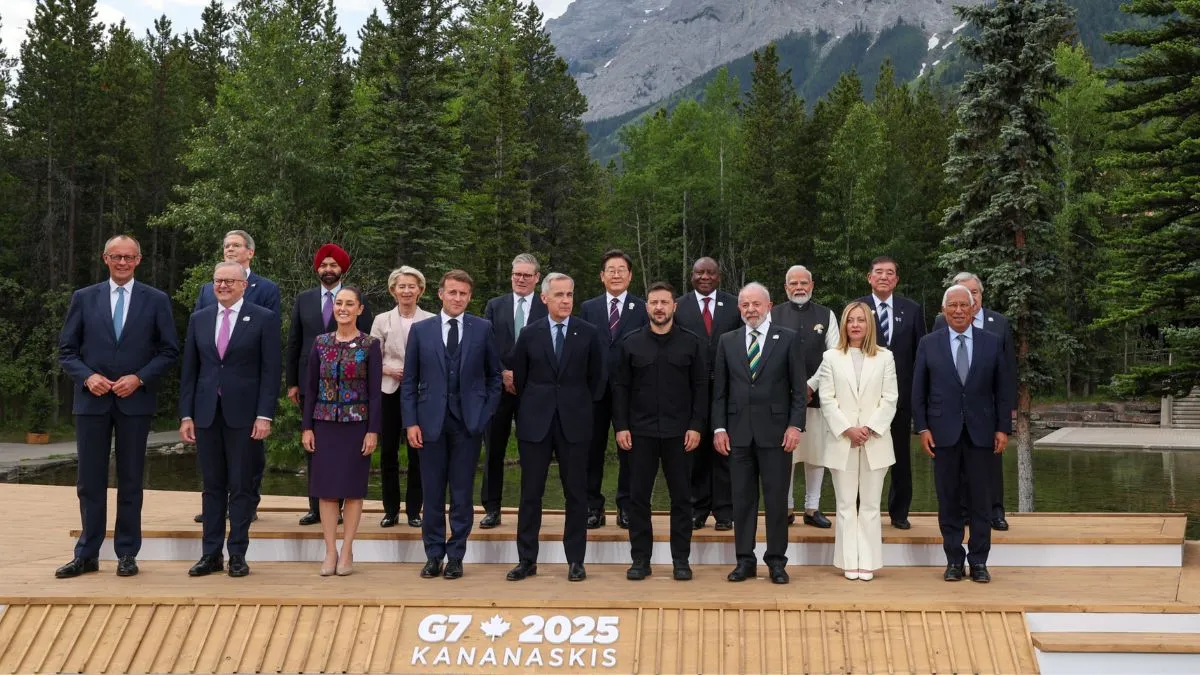In a strong and unified stance against organised criminal networks, the leaders of the G7 issued a joint statement reaffirming their commitment to counter and prevent migrant smuggling through intensified international cooperation and enforcement. The statement was released during the ongoing G7 Summit in Kananaskis, Canada.
The joint statement reads: "We, the Leaders of the G7, reaffirm our commitment to prevent and counter migrant smuggling through the G7 Coalition to Prevent and Counter the Smuggling of Migrants and the 2024 G7 Action Plan to Prevent and Counter the Smuggling of Migrants. We are determined to enhance border management and enforcement and dismantle the transnational organized crime groups profiting from both migrant smuggling and human trafficking."
The leaders acknowledged that migrant smuggling is closely linked to other serious criminal activities such as money laundering, corruption, drug trafficking, and human trafficking. These offences pose significant threats to community safety and expose smuggled individuals to numerous risks, including "physical abuse, sexual and gender-based violence, extortion, labour exploitation, and forced labour and criminality."
Strengthening operational capacity and international cooperation
Through the G7 Coalition, member nations have already made notable progress in boosting law enforcement capacities and enhancing international cooperation between police, judicial authorities, prosecutors, and border services.
To build on this momentum, G7 Interior and Security Ministers have been tasked with strengthening key areas of the 2024 Action Plan.
The joint statement outlines several core initiatives for the year ahead:
Adopting a “follow the money” approach by leveraging financial intelligence and information-sharing to identify and hold criminal actors accountable through judicial and administrative processes, including asset seizure.
Boosting prevention efforts in countries of origin and transit by enhancing border management capabilities and raising awareness about the risks of migrant smuggling.
Collaborating with social media platforms to establish voluntary principles that prevent organized crime groups from misusing these services to advertise or coordinate smuggling operations.
Engaging with transport operators to limit their role in facilitating irregular migration, especially where such actions are part of hybrid warfare strategies aimed at destabilizing regions.
Exploring sanctions and reinforcing human rights protections
The G7 is also considering, “consistent with our legal systems, the potential use of sanctions to target criminals involved in migrant smuggling and human trafficking operations from countries where those activities emanate.”
The leaders emphasized leveraging synergies with other global and regional efforts to promote international cooperation and continue supporting legal migration policies that align with national interests. Importantly, they reaffirmed their commitment to “countering all forms of abuse and exploitation of migrants, ensuring protection of the most vulnerable, including refugees and forcibly displaced persons,” in full adherence to international human rights obligations.

